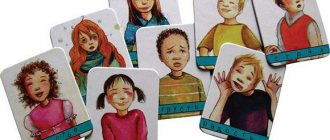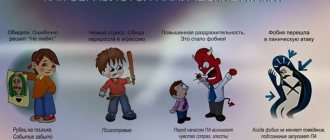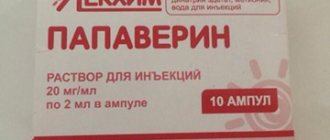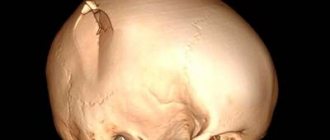Our little goal
— What advice would you give to parents who have just learned about their child’s severe cerebral palsy?
— I can advise the parents of our children to find a doctor whom you can trust and who will trust you as parents. Listen to yourself, you, as parents, notice and see a lot that a doctor cannot, will not have time to see and notice just during an appointment.
Work together with a doctor, together with a speech therapist, together with an exercise therapy instructor - a good doctor will never be against parents telling him something about their child, he himself will wait for interaction with you. Our work as parents is very important.
And also, be sure to look for opportunities to communicate with other parents of children with special needs. This includes moral support, experience, and simply live communication, which we often really miss. Raising our children alone is very difficult. Look for local societies for the disabled - their help and support is priceless!
And most importantly, you need to achieve small goals. When you immediately start saying: “Doctor, will he go?”, no one will say anything. But small goals force you to mobilize yourself every day to achieve this small goal. And it is easier to achieve it than to change something global. And if you focus on this small goal, then the general feeling of disaster in your life goes away a little.
- What is your small goal now?
— We now have a small goal - to learn to eat. Afonya is already holding the spoon himself, he can bring it to his mouth three times, and then - that’s it, his hands are weak and tired. Among the achievements - Afonya began to kneel, and before that he simply sat between his heels, and began to stand with support. Achieving all this is not easy - you need to lower your tone all the time. Every morning begins with gymnastics. Then - a verticalizer and skis in ski boots, on which we stand, so that our legs get used to standing. Then classes at the table. The speech therapist sets tasks, we talk through everything with him. Then the teacher comes from school (Afanasy is home-schooled). Next is free time.
“We have brothers, which means we have socialization!”
— How do you imagine Afonya’s socialization, his future?
— To be honest, I don’t have much of an idea yet, because we live not in plans, but in small plans for the near future. On the other hand, there must be such a goal. I understand perfectly well that when my husband and I leave, Afanasy will remain with his brothers, and I must do the maximum to make it at least a little easier for them. And if, of course, Afonya went, it would be the best. Because an adult non-ambulatory disabled person has an unenviable fate.
— Was it difficult for you to decide on having a younger child after Afonya?
Yes very. But we have an optimist in our family - my husband, he has a brother. He always believed that having many children in a family is good! For some time after the birth of Afonya, I, of course, could not even think about having another child. But he never doubted!
Now the youngest son and Afonya have an amazing connection. They play with cars and build garages together, talk in their “childish” language, the youngest hears how I work with him, how the speech pathologist-defectologist works, he also lays out cards: “So, Afonya, put red berries in a red bucket.” Afonya answers him, they understand each other perfectly.
The fact that he has brothers played a big role in Afonya’s development. We are always asked about socialization: “Do you go somewhere? To kindergarten or to the playground? I say: “We have brothers.” - “Well then you have socialization!”
“It felt like you were falling into nowhere”
— Anna, how did you find out about your son’s diagnosis, what was your first reaction?
“With Afanasy, it was immediately clear to me that there would be problems, because there was a difficult birth, injuries during childbirth. The threat of cerebral palsy was immediate. And in the hospital, where we were immediately after the maternity hospital, before being discharged, we were offered to leave him. In general, it was clear that our case was difficult.
During the first year of his life, of course, there was tossing and turning, because it was not clear what we should do? We didn’t have any help, a place where we could turn and find out what and how. I learned about the disabled people’s society when Afona was 4 or 5 years old.
There was an information vacuum, you were spinning around in it, and you didn’t know where to stick yourself in order to cling to something. Anything could happen: at three months, Afonya reacted to a medicine prescribed by a neurologist with a convulsive attack. And the neurologist who treated him stopped answering my calls at that moment. It seemed like you were falling into nowhere because you didn’t know what to do or where to run. It so happened that there was no neurologist who would undertake to observe us.
The only and very great support I had was from the local pediatrician. She also has a boy with cerebral palsy, just a mild form. She told us what needed to be done - consultation with a neurologist, rehabilitation.
When Afonya was little, they didn’t take us to any sanatorium, because “it’s heavy, we don’t take heavy people.” At three years old he didn’t even sit, he just lay down. For the first time, based on reviews from mothers, we went to Professor Kozyavkin’s clinic in Truskavets. We went there for two weeks, and Afonka sat on his knees, he needed some kind of push. Then we went there a year later. But, of course, once a year for two weeks is very little.
Sensory area
Education should alternate with rest, so a child with cerebral palsy needs a sensory zone - a place where the senses can be stimulated. Its contents and the choice of sensory stimulants depend on the child’s characteristics and preferences. For example, you can set up a dry ball pit, an aquarium, an easel, a music player, a lava lamp, or a sand painting table.
It would be somewhere
To renovate an apartment, you will first have to buy an apartment.
Or buy a fully furnished apartment and live right away. Both are available in the Airplane. View apartments







